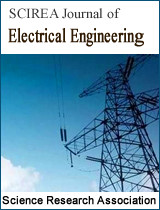Knowledge Mining Based on the Generalized Modal Syllogism A□MI-1
DOI: 10.54647/dee470364 60 Downloads 15805 Views
Author(s)
Abstract
This paper specifically focuses on the validity of generalized modal syllogism (i.e. A□MI-1) that contains the quantifier ‘most’. By making full use of generalized quantifier theory, modal logic and set theory, this paper derives 24 valid generalized modal syllogisms based on the validity of the syllogism A□MI-1. This method provides a concise mathematical framework that contributes to knowledge mining for generalized modal syllogism fragments.
Keywords
generalized modal syllogisms; validity; modality; reducibility
Cite this paper
Feifei Yang, Xiaojun Zhang,
Knowledge Mining Based on the Generalized Modal Syllogism A□MI-1
, SCIREA Journal of Electrical Engineering.
Volume 9, Issue 2, April 2024 | PP. 45-55.
10.54647/dee470364
References
| [ 1 ] | Łukasiewicz, J. (1957) Aristotle’s Syllogistic: From the Standpoint of Modern Formal Logic. second edition, Oxford: Clerndon Press. |
| [ 2 ] | Moss, L. S. (2008) Completeness theorems for syllogistic fragments, in F. Hamm and S. Kepser (eds.), Logics for Linguistic Structures, Mouton de Gruyter, Berlin: 143-173. |
| [ 3 ] | Moss, L. S. (2010) Syllogistic Logics with Verbs. Journal of Logic and Computation, 20(4): 947-967. |
| [ 4 ] | Long W. (2023) Formal System of Categorical Syllogistic Logic Based on the Syllogism AEE-4, Open Journal of Philosophy, 13(1): 97-103. |
| [ 5 ] | Haiping, W. and Xiaojun Z. (2024) Deductive Reasoning Based on the Valid Aristotelian Syllogism AEE-2. SumerianzJournal of Social Science, 7(1):1-4. |
| [ 6 ] | Malink, M. (2006) A Reconstruction of Aristotle’s Modal Syllogistic. History and Philosophy of Logic, (27): 95-141. |
| [ 7 ] | Feifei, Y. and Xiaojun Z. (2024) The Deductibility of the Aristotelian Modal Syllogism E□I◇O-4 from the Perspective of Mathematical Structuralism, SCIREA Journal of Philosophy, 4(1): 23-33. |
| [ 8 ] | Murinová, P. and Novák, V. (2012) A Formal Theory of Generalized Intermediate Syllogisms, Fuzzy Sets and Systems, 186: 47-80. |
| [ 9 ] | Baoxiang, W. (2024) Knowledge Mining Based on the Valid Generalized Syllogism MMI-3 with the Quantifier ‘Most’, SCIREA Journal of Information Science, 8(2): 84-94. |
| [ 10 ] | Mingwei, M. and Qing, C. (2024) Knowledge Mining about the Generalized Modal Syllogism E□M◇F-2 with the Quantifiers in Square{fewer than half of the} and Square{no}, SCIREA Journal of Computer, 9(2): 37-46. |
| [ 11 ] | Xiaojun, Z. (2018) Axiomatization of Aristotelian syllogistic logic based on generalized quantifier theory. Applied and Computational Mathematics, 7(3): 167-172. |
| [ 12 ] | Barwise, J. (1977)An introduction to first-order logic, Studies in Logic and the Foundations of Mathematics, Elsevier, 90: 5-46. |
| [ 13 ] | Kunen, K. (1980) Set theory: an introduction to independence proofs. The Netherlands: Elsevier Science Publishers B.V, 186-187. |
| [ 14 ] | Jun, Q. and Mingwei, M. (2024) Knowledge Reasoning Based on the Reducibility of Valid Generalized Syllogisms. SCIREA Journal of Electrical Engineering, 9(1): 1-10. |
| [ 15 ] | Liheng, H. (2024) The Validity of Generalized Modal Syllogisms Based on the Syllogism E□M◇O-1. SCIREA Journal of Mathematics, 9(1): 11-22. |
| [ 16 ] | Peters, S. and Westerståhl, D. (2006) Quantifiers in Language and Logic, Claredon Press, Oxford. |
| [ 17 ] | Chagrov, A, and Zakharyaschev, M. (1997) Modal Logic. Oxford: Clarendon Press. |

